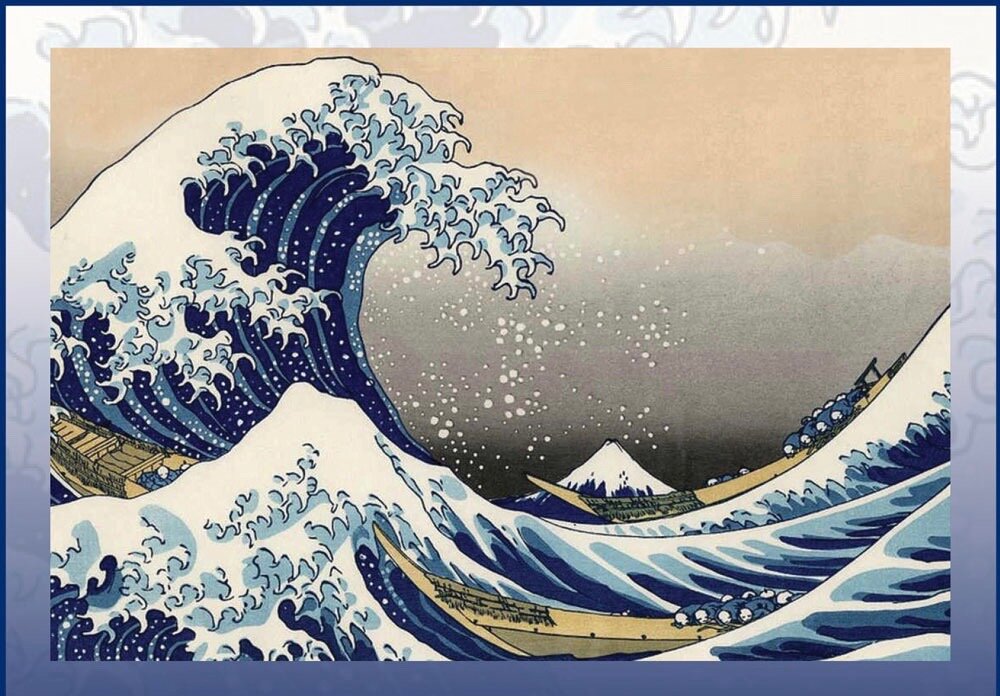It’s been an unbelievably challenging week in the news. This week continued and even upped the challenge of last week as more and more horror seeped out of Israel and more and more unseeable and unforgettable images made their way to television screens. I wondered more than once how the newscasters, how world leaders including our own, how the diplomats looked at - made themselves look at - the images that most networks wouldn’t even show on the air. And how that seeing changed them. There were tears in the eyes of many on television this week, family and friends of victims and the kidnapped, for sure - but also the news people themselves and their highly placed and knowledgable guests. And diplomats and spokespeople looked either haggard or also close to tears. The shock from last week took on different dimensions.
And throughout the news there were examples of reactivity and fury, decisive decisions that moved toward disaster for millions of people, and also examples of mindfulness of consequences, of rational consideration, of those walking a decisive path of fierce support balanced with compassion and realism. For those on the scene - anguished survivors and families desperate to be heard, the news casters were sometimes the only ones listening to their stories as their leaders prepared to defend and redress the attack. For those in this country, an amazing leader who lived through unimaginable loss himself choose to listen and listen and listen to the stories and outcries from anguished people.
And what is compassion if not that ability and that willingness to find a quiet spaciousness within to listen and listen and listen? In the talk I played last week by Koshin Paley Ellison, he talked of listening as the 9th of The Noble Eightfold Path. (Actually Wise Speech includes non-speech, wise listening.) Famed Catholic priest and author of The Wounded Healer, Henri Nouwen writes in Reaching Out, “…healing means, first of all, the creation of an empty but friendly space where those who suffer can tell their story to someone who can listen with real attention. …But listening is an art that must be developed…It needs the full and real presence of people to each other. It is indeed one of the highest forms of hospitality.”
This listening is hard to do. Compassion means to tremble with, to be willing to accompany another into the depths of their grief, to share the burden, not to view from afar with pity, but the see the common humanity, the “there but for the grace of God go I…” of their circumstance. And it hurts to be with such hurt.
So we need to respond to our own pain as well as the pain of others. To the extent we have plumbed our own depths of vulnerability, pain, and despair and learned to have compassion for ourselves, we are able to be with others and listen, listen, listen…
This week I have seen my own limits rising and falling, responding with compassion and listening at times, and turning away, turning off, protecting my own wounds at others. Does this sound familiar? And can we hold ourselves in a vast compassion, in that friendly spaciousness that invites us to be with what we can’t bear?
Clarissa Pinkola Estés, Ph.D., American poet, psychoanalyst and post-trauma specialist, says in Letter to a Young Activist During Troubled Times, "One of the most important steps you can take to help calm the storm is to not allow yourself to be taken in a flurry of overwrought emotion or despair – thereby accidentally contributing to the swale and the swirl. Ours is not the task of fixing the entire world all at once, but of stretching out to mend the part of the world that is within our reach.
"Any small, calm thing that one soul can do to help another soul, to assist some portion of this poor suffering world, will help immensely.
"It is not given to us to know which acts or by whom, will cause the critical mass to tip toward an enduring good. What is needed for dramatic change is an accumulation of acts – adding, adding to, adding more, continuing. We know that it does not take “everyone on Earth” to bring justice and peace, but only a small, determined group who will not give up during the first, second, or hundredth gale.”

